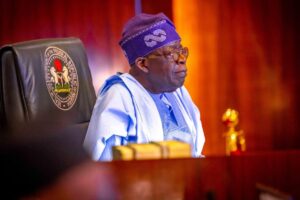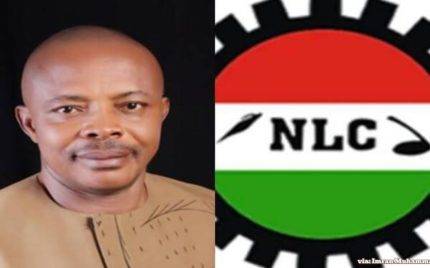The Nigeria Labour Congress (NLC) has directed workers in states failing to implement the 2024 National Minimum Wage to begin an indefinite strike on December 1, 2024. This directive emerged from the National Executive Council (NEC) meeting held over the weekend, where labor leaders expressed deep frustration over the delay in wage implementation. The new wage law mandates an increase in the minimum salary for Nigerian workers, designed to address the rising cost of living and economic pressures on families.
NLC’s stance is firm, as they see this delay as not only a breach of trust but a violation of legal obligations by the state governments involved. The NEC’s statement condemned the inaction by these states, describing it as both a moral and legal disregard for the rights and dignity of workers who struggle daily to survive. The organization argues that a failure to implement the wage increase is an exploitation of labor, furthering economic inequality.
NLC’s Resolutions and Directives
Following extensive deliberations, the NEC has resolved to implement several measures to enforce the new wage law. Among these is the establishment of a National Minimum Wage Implementation Committee, tasked with assessing compliance across states and spearheading a nationwide awareness campaign. The campaign will focus on educating workers and the public on their rights, as well as the benefits of implementing the wage increase for Nigeria’s economic stability.
Additionally, the NLC has issued a formal directive for state labor councils in non-compliant states to mobilize their members for industrial action. From December 1, workers in these states will down tools, halting all government services until the wage is fully implemented. The NLC views the strike as a necessary step to compel state governments to honor the minimum wage agreement and deliver justice to the Nigerian workforce.
Economic Hardships for Nigerian Workers
With inflation and a challenging economy, Nigerian workers have faced significant economic hardship, amplifying the need for fair wage adjustments. The 2024 Minimum Wage Act was a response to this economic climate, meant to provide relief by ensuring that wages reflect the cost of living. However, the refusal of some state governments to implement the act has prolonged the suffering of workers, who continue to struggle to meet basic needs.
This delay exacerbates financial strain for millions of Nigerian families, already grappling with rising prices for food, transportation, and utilities. For these workers, the new wage represents not just an economic adjustment but a means to restore their financial stability. The NLC argues that these state governments are ignoring the real-life impacts of their inaction on the well-being of families across the country.
Legal and Moral Implications
The NLC has highlighted the legal and ethical ramifications of state governments’ refusal to implement the minimum wage. As per the 2024 National Minimum Wage Act, it is unlawful for any state to pay its workers less than the agreed wage floor. By disregarding this law, these governments are not only violating workers’ rights but undermining the legal structure of wage regulation.
Moreover, the NLC asserts that the non-compliant states are morally failing their workforce by refusing to pay fair wages. This stance paints a picture of governors and officials who prioritize fiscal policies over the livelihood of their employees. Such actions, the NLC contends, are an affront to the integrity of Nigeria’s public service ethos and could erode workers’ trust in government institutions.
Mobilization and Sensitization Efforts
In preparation for the impending strike, the NLC has launched a mobilization campaign aimed at rallying public support and educating workers on the importance of the minimum wage implementation. This campaign is intended to empower employees with knowledge of their rights and to prepare them for the industrial action scheduled for December 1. The NLC believes that this will unite the workforce and drive a collective demand for compliance.
Through town hall meetings, leaflets, and social media outreach, the NLC is working to build awareness among workers and their communities. This nationwide sensitization effort emphasizes the NLC’s commitment to ensuring that the strike yields tangible results. By mobilizing public opinion, the NLC aims to apply pressure on state governments to honor their obligations and comply with the law.
Prospective Outcomes and the Path Forward
As December 1 approaches, stakeholders across Nigeria are watching closely to see how the strike will unfold and what effects it will have. Economists warn that an extended strike could disrupt essential services, affecting sectors such as healthcare, education, and transportation. Nevertheless, the NLC remains adamant, viewing the strike as a critical step toward achieving wage justice for Nigerian workers.
The NLC has pledged to continue its advocacy until the minimum wage is fully implemented nationwide. This resolve indicates that the path forward will involve continued negotiations, heightened public advocacy, and possibly further strikes if non-compliance persists. For now, Nigerian workers remain steadfast in their pursuit of a fair wage, supported by a labor movement determined to hold government accountable to its commitments.
Table of Contents
Discover more from OGM News NG
Subscribe to get the latest posts sent to your email.














